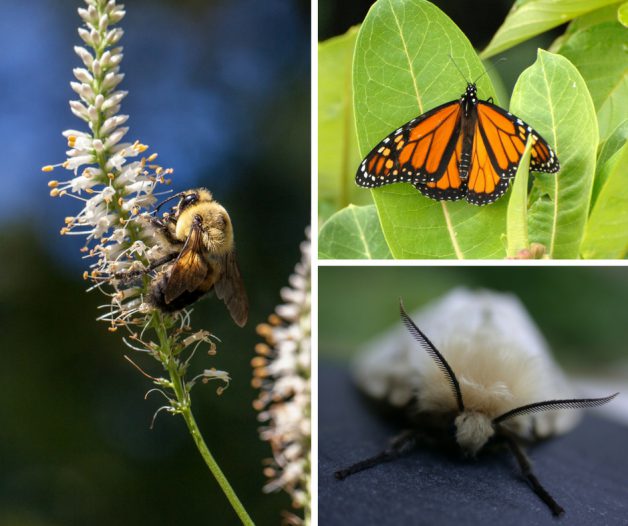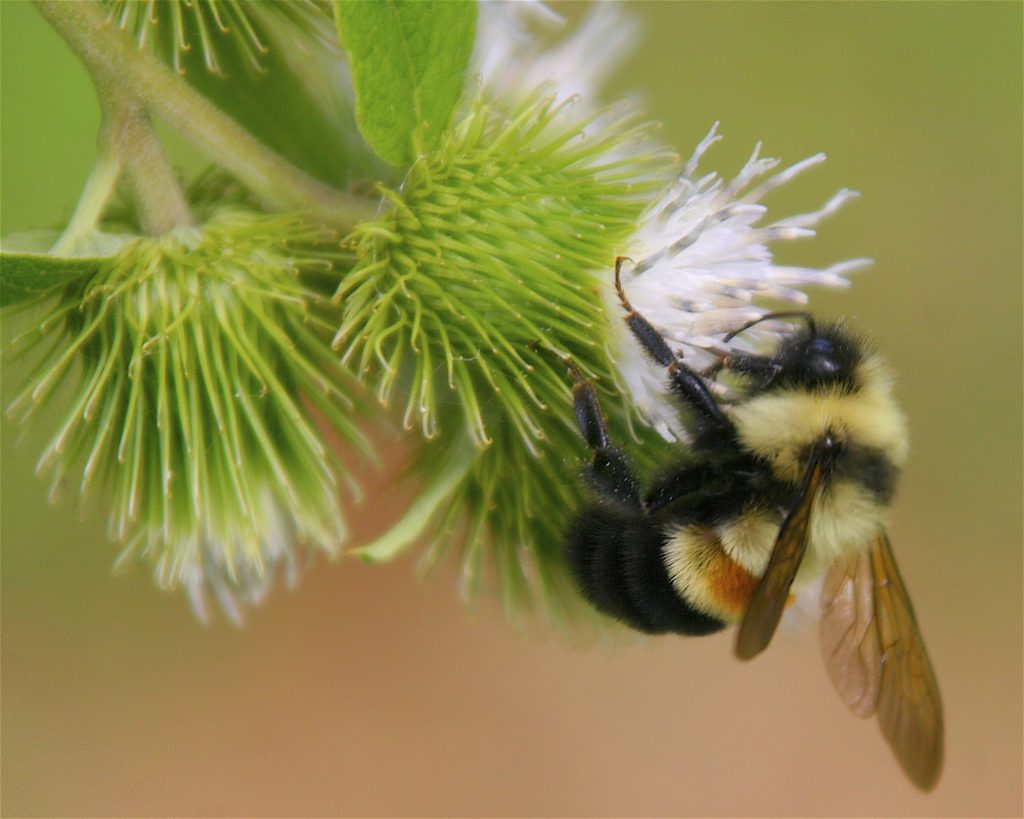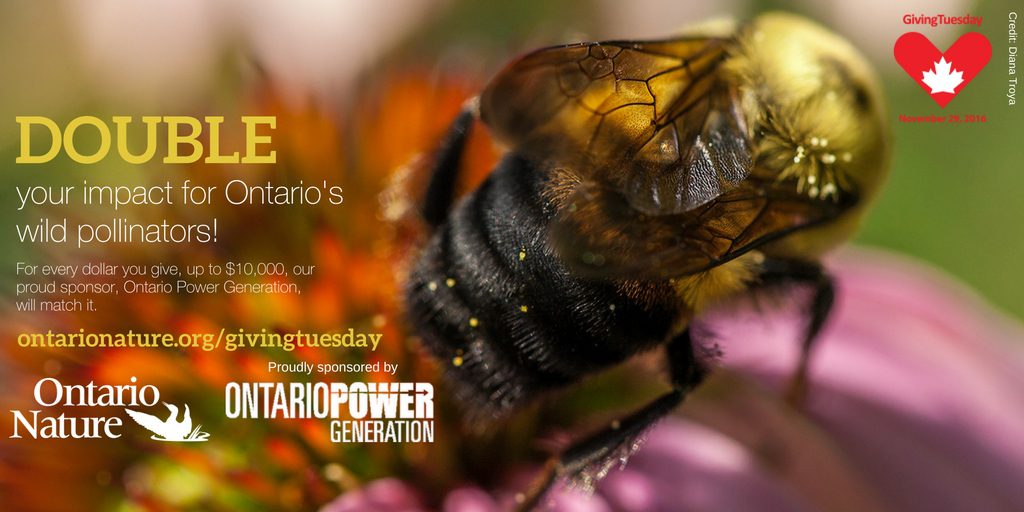Ontario Nature Blog
Receive email alerts about breaking conservation
and environmental news.
© Lora Denis
Brown belted bumblebee on cupplant © Diana Troya
For most of us, the word ‘pollinator’ brings to mind non-native honeybees. Wild pollinators, however, are the most widespread and numerous of all pollinators. This includes native wild bees, wasps, flies, ants, butterflies, moths and certain beetles, birds and bats.
Wild pollinators contribute significantly to many agricultural crops, helping to produce over one-third of the food we eat. They also play a key role in the survival of a wide variety of trees, shrubs and flowering plants —along with the wildlife that depend on this flora for food and shelter. Their services contribute an estimated $60 billion dollars (U.S.) to the North American economy.

Sounds great, right? There’s just one problem: pollinator populations are now facing a sharp decline, threatening our ecological, human and economic health.
The once-abundant rusty-patched bumblebee is a good example of the competing factors responsible for the widespread decline in wild pollinator populations.

Ontario is the last province in Canada that the rusty-patched bumblebee can be found. The 90 percent decline of the species cannot be explained by a singular cause. Threats often work in combination and can include habitat loss, climate change, disease, pesticide exposure, and invasive species.
Human activity is a major culprit, but together we can reverse the sharp declines that pollinator populations are currently experiencing.
When you support Ontario Nature’s Giving Tuesday cause, you’ll be helping to protect wild pollinators like the rusty-patched bumblebee, just one of many wild pollinators at risk of extinction.

For every dollar you give, up to $10,000, will be matched by Ontario Nature’s proud sponsor, Ontario Power Generation.
Even your $2 gift will make a big difference. All donations help protect Ontario’s wild pollinators by creating and protecting critical pollinator habitats, raising public awareness about the importance of pollinators, and fostering cities that embrace pollinator-friendly practices.
Please consider making your gift today in support of Ontario’s wild pollinators.

Proposed 413 Route, Old School Road with farm and escarpment view © Noah Cole